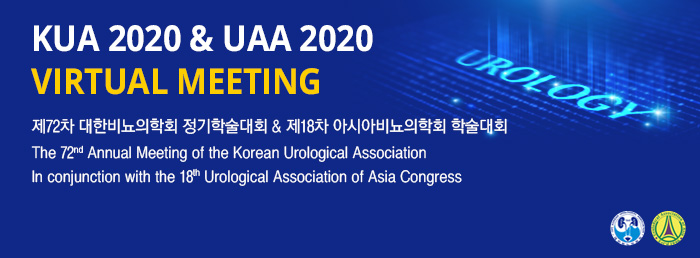|
Endourology & Stone Disease(구연)
|
(E-162)
|
|
|
위스콘신 결석 삶의 질 설문지의 한국어 버전 번역 및 검증 |
1. 서울대학교 의과대학 비뇨의학교실
2. 한양대학교 의과대학 비뇨의학교실
3. 서울특별시립 보라매병원 |
| 정규환¹, 윤영은², 조성용¹·³ |
Purpose: Although cure rate and efficacy of treatment for urinary stone disease have been improved, clinicians have been indifferent to the quality of life (QoL) of stone patients in Korea. The objective of this study was to develop a Korean version of Wisconsin questionnaire about quality of life questionnaire (K-WISQOL) of stone patients for use in Korea.
Materials and Methods: Linguistic validation was permitted for translation by its developers. Three bilingual nonspecialists and 11 panels who were actively involved in treating urinary stone patients performed the translation and linguistic validations. A trained interviewer and 5 Korean patients carried out cognitive debriefing.
Results: Noun words such as “energy” and “responsibilities” were very difficult to translate to Korean. They were substituted by more comprehensive words. After backward translation, translated sentences showed a good agreement with the original WISQOL. During backward translation and the second reconciliation, previously translated Korean version was revised in 5 sentences. In the cognitive debriefing process, all 5 patients thought that these questions explained the patient’s situation well. Most of these respondents answered that explanatory notes of questionnaire were well written and the format of the questionnaire was easy to follow.
Conclusions: The present study demonstrated that, despite language differences, translation and linguistic validation of the KWISQOL were successfully performed. This K-WISQOL could be useful tools for treatment plan and patient care.
|
|
keywords : Urolithiasis, Quality of life, Validation study |
|

